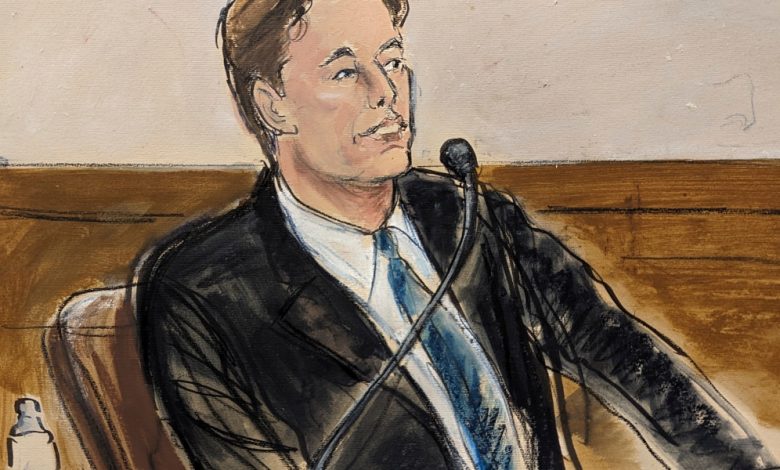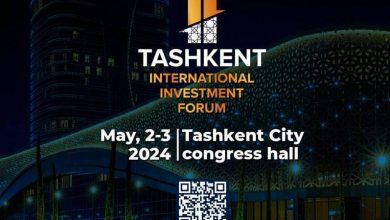Elon Musk Trial: Tesla CEO Says He Will Replace Himself as Twitter CEO

Tesla CEO Elon Musk took the witness stand Wednesday to defend himself in a shareholder lawsuit against a compensation package awarded to him by the company’s board that is potentially worth more than $55 billion.
Musk denied that he dictated the terms of the compensation package or attended meetings where the plan was discussed by the board, its compensation committee, or a working group that helped develop it.
“I was totally focused on running the business,” he said.
Plaintiff’s attorney, Greg Varallo, spent much of his early cross-examination trying to get Musk to admit that he controls Tesla to such an extent that he can get the board to do his will. Among other things, Varallo quizzed Musk about his title “Technoking,” a role Musk has previously noted comes with “zeal” and “great dance moves.”
“I think comedy is legal,” Musk told Varallo, who had wondered if Musk was “stone cold sober” when he thought of the title.
Varallo also suggested that one of the reasons Musk came up with a “master plan” for Tesla was to let people know he was in charge. He also noted that Musk makes recommendations on executive compensation and that he unilaterally made the decision to suspend Tesla’s policy of accepting bitcoin from vehicle buyers.
“They ask complex questions that cannot be answered with ‘yes’ or ‘no,'” Musk said when Varallo asked if he had the vision for Tesla.
The lawsuit alleges that the performance-based stock option grants were negotiated by the Compensation Committee and approved by Tesla board members who had conflicts of interest due to personal and professional ties to Musk, including investments in his companies. It also alleges that the shareholder vote approving the compensation plan was based on a misleading proxy statement.
The shareholder plaintiff alleges that the attorney-in-fact misrepresented the members of the Compensation Committee as “independent” and labeled all milestones that triggered the exercise of the stock options as hard-to-achieve “stretch” targets, despite internal projections suggesting three operational milestones would likely be achieved within 18 months of shareholder vote.
Attorneys for the defendants have noted that two proxy institutional advisory firms that urged shareholders to oppose the plan nonetheless noted that it would require “significant and perhaps historic achievements” and growth that “appears to exceed by any benchmark “.
The plan called for Musk to rake in billions if Tesla hit certain market cap and operating milestones. For each simultaneous achievement of a market capitalization milestone and an operational milestone, Musk, who owned approximately 22% of Tesla at the time the plan was approved, would receive shares equal to 1% of the shares outstanding at the grant date. His stake in the company would rise to about 28% if the company’s market cap increased by $600 billion.
Each milestone in the plan includes increasing Tesla’s market cap by $50 billion and meeting aggressive pre-tax revenue and earnings growth targets. Musk would only receive the full benefit of the compensation plan, $55.8 billion, if Tesla reached a $650 billion market cap and unprecedented revenue and profits within a decade.
To date, Tesla has met all 12 market cap milestones and 11 operational milestones, resulting in 11 of the 12 tranches of the grant vesting and giving Musk over $52.4 billion in stock option gains, according to the lawsuit. Since the grant was awarded, Tesla’s market cap has grown from $59 billion to now more than $613 billion, after briefly hitting $1 trillion earlier this year. Musk has sold Tesla shares to fund the Twitter purchase, adding downward pressure on shares.
Shares of Tesla and other automakers have taken a hit this year, but the Austin, Texas-based company made $5.5 billion in 2021, blasting last year’s profit of $721 million. It also produced a record 936,000 vehicles, almost doubling vehicle production in 2020.
The plaintiff’s attorneys have suggested that inciting Musk to stay at the helm of Tesla by offering a huge compensation package is unnecessary, since he never indicated he might leave. They have also hinted that Musk’s real motive in negotiating the package was to fund his dream of colonizing Mars.
In a November 2017 email to former Tesla general counsel Todd Maron, Musk expressed optimism that the compensation package would be viewed in a favorable light.
“Given that this is all being used for purposes that will at least ambitiously maximize the likelihood of a bright future for humanity, and that all Tesla shareholders will be super happy, I think this will be well received,” he wrote adding, “it should come as an ultra-bullish look ahead.”
At the booth, Musk also said that he doesn’t want to be the CEO of a company.
“I expect to cut back on my time on Twitter and find someone to run Twitter over time,” Musk said, according to multiple media reports.
Our new weekly Impact Report newsletter will examine how ESG expectations and issues are influencing the roles and responsibilities of today’s leaders – and how best to address these challenges. Subscribe here.



